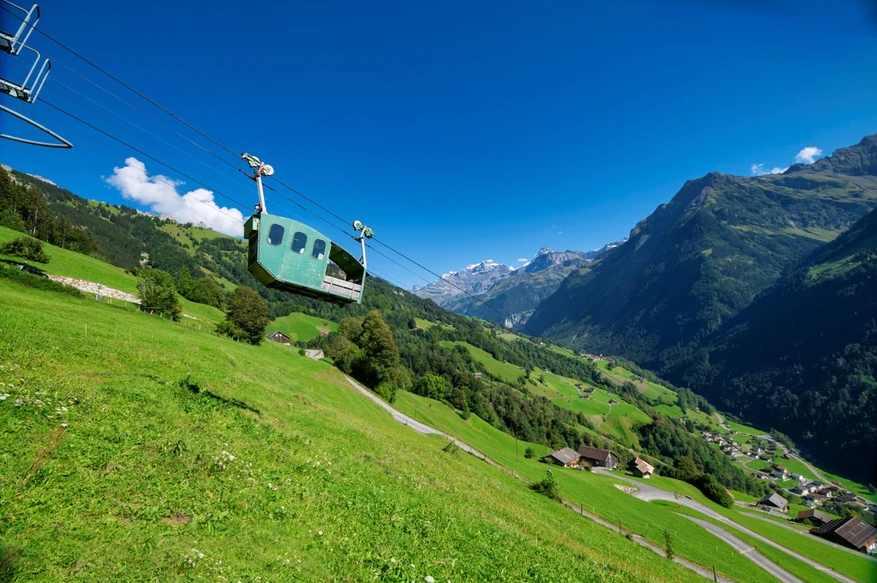Let me state from the outset, you won’t get a discount if you mention to your travel agent that you read this article when you book your trip to Switzerland this summer.
But it will be nice to have you back; Switzerland – in line with much of Europe – is planning to open up to overseas visitors in a few short weeks. And since we haven’t seen you in a while, I expect you’ll be welcomed with open arms!
I can assure you, the place hasn’t changed much. Of course, we have taken to wearing masks (often as flimsy elbow padding) and like to keep our distance, but you’re used to that by now.
Change is in the works though. After the pandemic sent the sector into a downward spiral, from the worrying heights of overtourism to the pit of no tourism at all, the global industry has been rethinking how it does business.
“Sustainable” has become the buzzword for the recovery expected this summer. That has been interpreted as fewer trips but longer stays allowing you time to get off the well-trodden tracks.
In Switzerland that equates to spreading your vacation money around since the Swiss Alps are more than just Zermatt, Interlaken, and Davos. Small and medium-sized businesses that are the lifeblood of many a mountain community would also like to see the benefits.
The national marketing body, Switzerland Tourism, has coined its own term for this kind of travel: “Swisstainable”. While you may groan while reading that, I do think it’s worth seeing what kind of impact the campaign could have, since it’s targeting tourist operations as well as tourists themselves.
As I wrote in my previous newsletter, participating companies can apply for a “Swisstainable” label if they commit to making a contribution to adhere to the United Nation’s Sustainable Development Goals.
Since I know how much you care about Switzerland, I’d like to share with you the views of Switzerland Tourism’s CEO, Martin Nydegger, on why he believes the marketing body needs to move more in this direction and rethink the kind of Switzerland they’d like you to experience.
If you’d like to do your part and see another side of Switzerland, here are the top three places on my bucket list.
You can pay hundreds of francs for a cable car ride above Zermatt or Grindelwald, or instead ten or 20 for your whole family to hop into a cosy gondola (legroom at a premium) to ascend the pastoral slopes of the central Swiss Alps.
I’ve reported from the historic town of Altdorf in this part of Switzerland before, and from there whizzed along the road eastwards to cross the scenic Klausen Pass, but the next time I plan to make a pit stop.
The small gondolas along the stretch through the Schächen Valley were installed to give mountain farmers a lift – to transport hay and other supplies up the steep mountainsides.
The cars – some that are open to the elements – are not only charming in a vintage sort of way but have become such an integral part of the region’s heritage that researchers have literally pricked up their ears to learn more about them. If you go, you may bump into a music professor who’s been hooking up microphones to record the sounds made from the vibrations of the cables. When he’s finished, he intends to include them in a musical composition.
If you head further south from Altdorf to Andermatt, I recommend a side trip up to the Oberalp Pass. That’s where you can wander around a former military barracks before they’re turned into a high-end hotel or restaurant. The barracks are a remnant of the Swiss Redoubt, Switzerland’s defensive infrastructure built into the mountains to protect against attack. They’ve just been sold to the company that operates the luxury hotels and restaurants and skiing infrastructure in and around Andermatt. The views from up here aren’t bad either.
The last place on my bucket list is Lucerne. That may come as a surprise since the town was a pre-pandemic tourist hot spot, which provoked the ire of residents, who felt the onslaught of overseas visitors had become a blight on the town.
But Lucerne has felt the impact of Covid like no other Swiss destination. Stay-close-to-home Swiss holidaymakers were unable to make up for the absence of overseas visitors who Lucerne relies so much on. This led to a massive drop in income, amounting to a paltry 25% of the previous year’s level. The Lucerne tourist board says it’s learned its lesson and is now pivoting to do more to market its attractions to Europeans.
It could be a first test of Switzerland Tourism’s “Swisstainable” policy.
If you have a story about your experiences in the Alps do get in touch: [email protected]
Full story here Are you the author? Previous post See more for Next postTags: Environment,Featured,newsletter
































